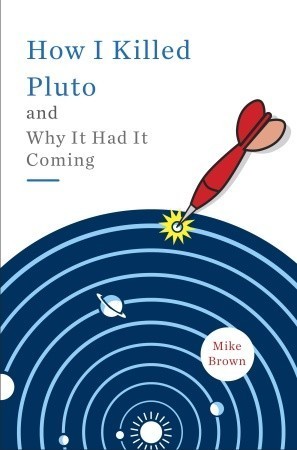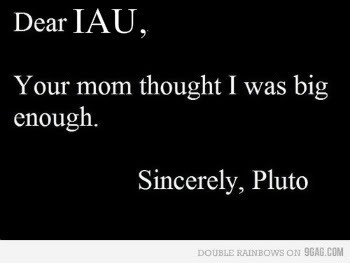What do you think?
Rate this book


267 pages, Hardcover
First published December 7, 2010





Here's that picture, with tiny Pluto in the right upper corner. A lovely flashback to childhood, thanks to the power of Internet.
“Pluto is not a planet not because it fails to meet the three-headed criteria laid out by the IAU. Pluto is not a planet because the criteria were written to try to explain the concept that Pluto is not a planet.”I remember feeling annoyed with Pluto's demotion. Why mess up the beautiful picture of the solar system that my brain has been housing since the 1980s? It seemed silly and mean, and made me want to root for the underdog.
“I’m still looking for planets, but the bar is now much higher. Anything new that wants to be called a planet needs to be a significant presence in our solar system, and I am not certain that there are any more hiding in the sky. But I keep going. Someday, I hope, I’ll be sitting in my office looking at pictures of the sky from the night before, and there on the screen will be something farther away than I’ve ever seen before, something big, maybe the size of Mars, maybe the size of the earth—something significant. And I’ll know. And, as I did years earlier, I’ll immediately pick up the phone and call Diane. “Guess what?” I’ll say. “I just found the ninth planet.” And—once again—the solar system will never be the same.”
